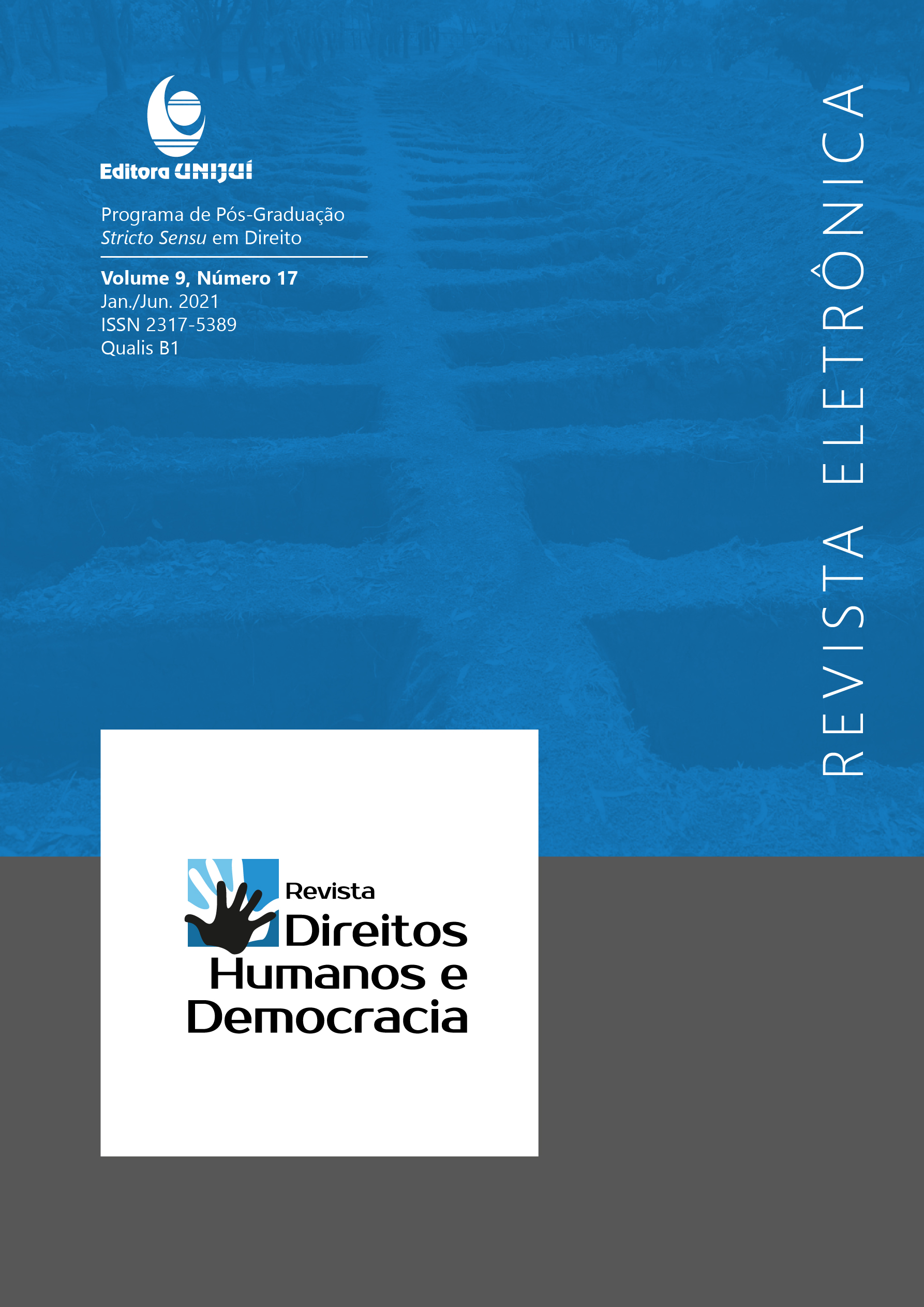A (IN)APLICAÇÃO DA RESERVA DO POSSÍVEL ANTE A JUDICIALIZAÇÃO DA SAÚDE: A NECESSIDADE DA OBSERVÂNCIA DO PRINCÍPIO DA PROPORCIONALIDADE
THE (NON-)APPLICATION OF THE POSSIBILITY OBJECTION IN RESPECT OF PUBLIC HEALTH JUDICIALIZATION: THE NEED TO OBSERVE THE PRINCIPLE OF PROPORTIONALITY
DOI:
https://doi.org/10.21527/2317-5389.2021.17.8920Keywords:
Judicialização da saúde; Reserva do Possível; Proporcionalidade; Direito à saúdeAbstract
O presente trabalho versa sobre tema atual, qual seja, a (im)possibilidade da aplicação da reserva do possível
ante a judicialização da saúde. Por meio de exploração bibliográfica e jurisprudencial, conseguiu-se identificar os
parâmetros que o Poder Judiciário tem adotado para conceder tutelas liminares de urgência no âmbito do direito
à saúde. Tais balizas podem ser resumidas como: possibilidade de grave lesão à ordem, à saúde e à economia públicas;
e possibilidade do fornecimento de medicamento de alto custo inviabilizar o adequado funcionamento do
Sistema Público de Saúde, bem como prejudicar o andamento dos serviços de saúde básica em relação ao restante
da população, além da concessão dessas tutelas liminares de urgência configurar indevida interferência do Poder
Judiciário na esfera de atribuições do Poder Executivo. Concluiu-se, então, que é necessário que haja a observância
do princípio da proporcionalidade com a finalidade de respeitar o sistema de checks and balances necessário entre
os três Poderes.
Downloads
Published
How to Cite
Issue
Section
License
By publishing in the Revista Direitos Humanos e Democracia, authors agree to the following terms:
Articles are licensed under the Creative Commons Atribuição 4.0 Internacional (CC BY 4.0), which allows:
Share — copy and redistribute the material in any medium or format;
Adapt — remix, transform, and build upon the material for any purpose, including commercial use.
These permissions are irrevocable, provided the following terms are respected:
Attribution — authors must be properly credited, with a link to the license and indication of any modifications made;
No additional restrictions — no legal or technological measures may be applied that restrict the use permitted by the license.
Notices:
The license does not apply to elements in the public domain or covered by legal exceptions.
The license does not grant all rights required for specific uses (e.g., image rights, privacy, or moral rights).
The journal is not responsible for opinions expressed in the articles, which remain the sole responsibility of the authors. The Editor, with the support of the Editorial Committee, reserves the right to suggest or request modifications when necessary.
Only original scientific articles presenting research results of interest, not previously published or simultaneously submitted to another journal with the same purpose, will be accepted.
References to trademarks or specific products are intended solely for identification purposes and do not imply any promotional endorsement by the authors or the journal.
License Agreement: Authors retain copyright over their articles and grant the Revista Direitos Humanos e Democracia the right of first publication.













